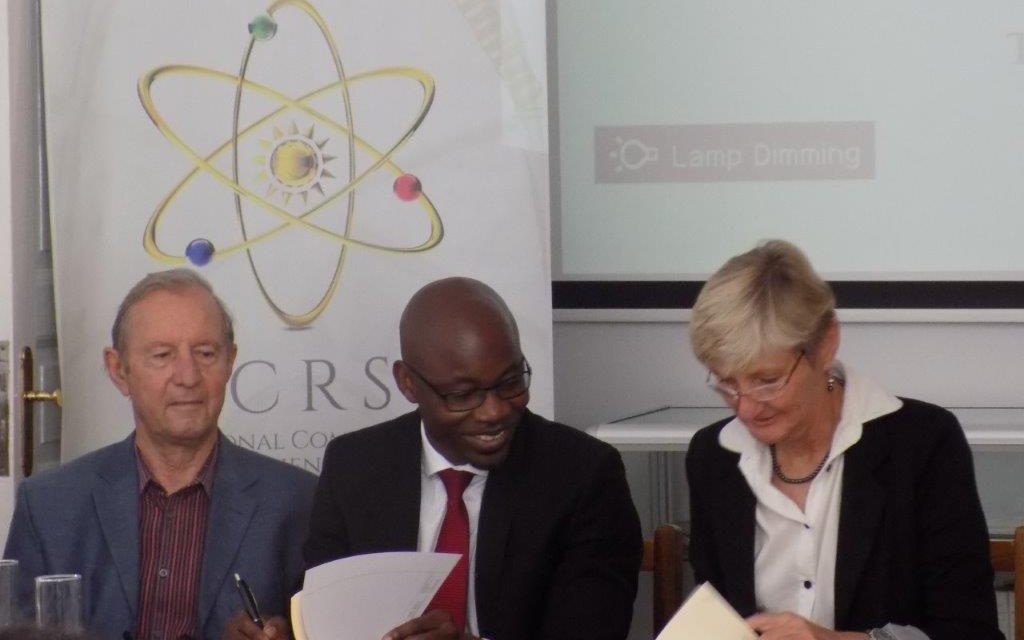
When oldest and youngest science promotors meet, great work can be expected

Namibia’s oldest promoter of science this week signed a comprehensive Memorandum of Understanding with the newest science kid on the block.
Helmut Bistri and Waltraut Fritzsche of the Namibia Scientific Society received the Chief Executive of the National Commission for Research, Science and Technology, Dr Eino Emvula (centre) on Thursday this week to sign the Memorandum formalising the relationship between the society and the commission.
The signing ceremony was witnessed by Maria Andimba and Iyaloo Kandjabanga of the Science Commission and Dr Michael Backes, Gabriele Moldzio and Alfred Schleicher of the Scientific Society.
Under the Memorandum of Understanding the commission and the society agree to cooperate on matters relating to the promotion of research, science, technology and innovation.
The Memorandum further makes provision for establishing and maintaining a Namibian Journal for Research, Science, Technology and Innovation.
The two science promoters also agreed to co-host events for the promotion of science through international collaboration and networking.
Finally, the documenting, preserving, sharing and distributing of scientific information; and the transfer of technology in various areas of mutual interest, are guaranteed by the provisions of the Memorandum.
The intention of the Memorandum of Understanding is to strengthen and further develop the friendly relations between the two organisations, recognising the importance of science and technology for national development and for the economy.
“We are excited about this partnership between the Scientific Society and the Science Commission as we believe it would further stimulate the growth and development of research and application on issues relevant to national development. A Joint Technical Committee would be constituted in terms of this Memorandum to ensure its effective implementation. The committee has clear terms of reference which includes identification of projects for collaboration, drawing up of implementation plans, and monitoring of the implementation of such plans” said Dr Mvula.
As a member association founded 92 years ago in 1925, the Namibia Scientific Society has established a sound reputation as an unbiased, independent curator of scientific knowledge, and as a repository for one of the biggest collections of scientific and historical publications.









































